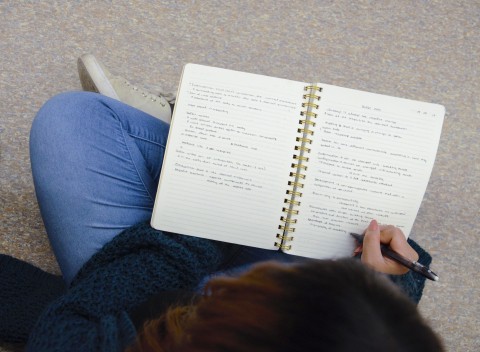On Nov. 15, Disability Services for Students will be changing its name to Access and Equity Services to more accurately reflect the variety of support services offered to students at the University of Saskatchewan.
Over 1,800 students use DSS for advocacy, services and accommodations to help them during their time in university. DSS works with students to alleviate the barriers they may face during their academic program, including those that are related to a physical or mental disability and those that are not related to disability.
Christopher Slater-Lunsford, a third-year psychology student registered with DSS, believes that the change to AES accurately reflects the wide scope of services offered by the unit to him and other students who are registered for accommodations and services.
“They do their best to make it so all students have the ability to succeed here at [the] U of S, regardless of whatever additional challenges we may face. They’ve been great about addressing any issues I have,” Slater-Lunsford said, in an email to the Sheaf.

Support services based on religion, family status and gender identity will be recognized in the renaming of the DSS unit.
Some of the services offered by DSS include exam and academic accommodations, lecture-note sharing, advocacy for student accessibility, mediation between students and instructors and a variety of assistive technologies for reading and writing. DSS provides resources to students who also may encounter discrimination based on disability, as outlined in the Saskatchewan Human Rights Code.
Maxine Kinakin, manager and associate registrar of accommodation at DSS, believes that updating the name to AES will be more inclusive for the students, who have various reasons for registering with the unit.
“[AES] better reflects the supports and accommodations that we can provide, when necessary, to students who identify in the protected areas of the SHRC. This includes assisting students requiring accommodations based on disability, religion, family status — including pregnancy — and gender identity,”
Kinakin said, in an email to the Sheaf. Kinakin explains that, although students will notice the name change on all of the official documents and communications, the services that are provided and the students who are registered with the unit will not be affected by this change.
“I hope that the name change makes more sense for students who are needing support with requesting academic accommodations for reasons that are not related to disability. That said, the vast majority of students we assist are accommodated based on disability, and that will not change,” Kinakin said.
Kinakin notes that renaming DSS to AES is a huge undertaking but that her unit is working diligently to update all documents and resources to reflect the upcoming name change.
In Slater-Lunsford’s experience, navigating through campus can be difficult in certain spaces, because he uses a wheelchair for mobility. In one of his courses, which is situated in Room 143 in the Arts Building, he says that he is unable to access a spot at the front of the classroom, but the accommodations provided by DSS helped him overcome the accessibility barriers that he faces.
“They’ve helped ensure that I’m able to take final exams [and] get note-takers for various classes, and [they] work with me and my instructors on accessing classrooms,” Slater- Lunsford said. “The situation is still challenging, but it’s certainly more accessible and equitable thanks to DSS and my instructor.”
—
Kay-Lynne Collier
Photo: Kale Locsin